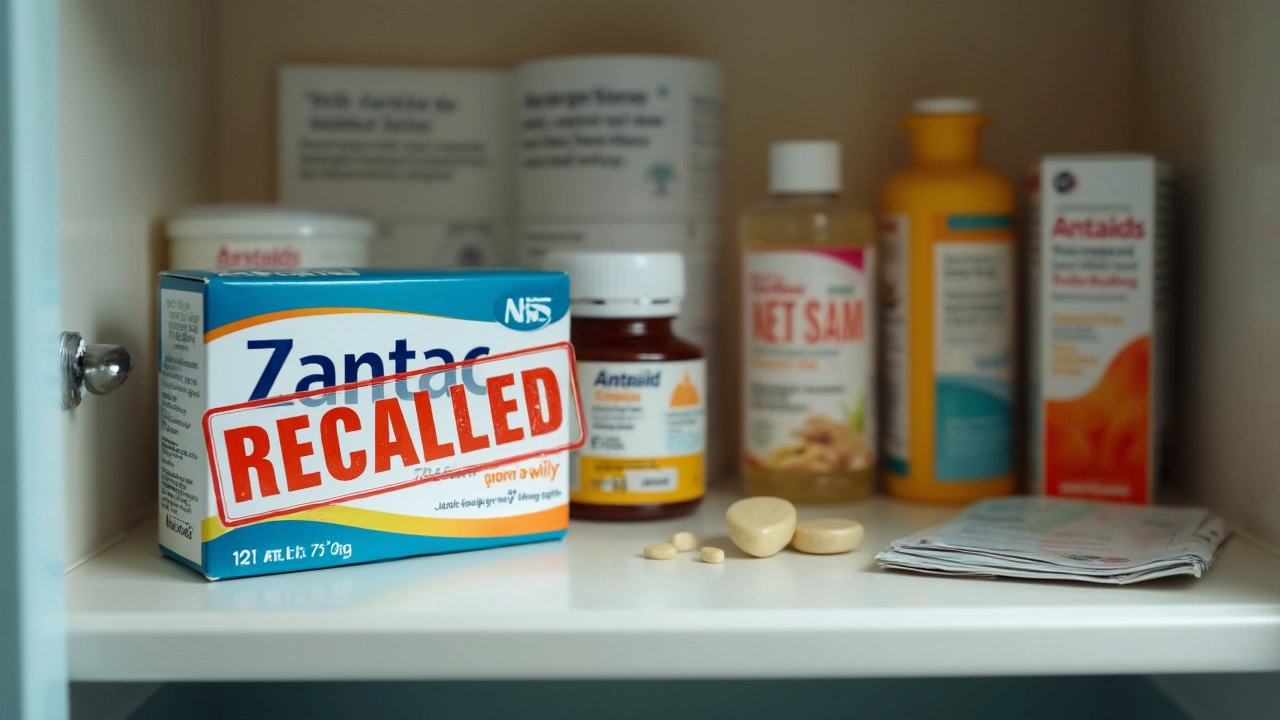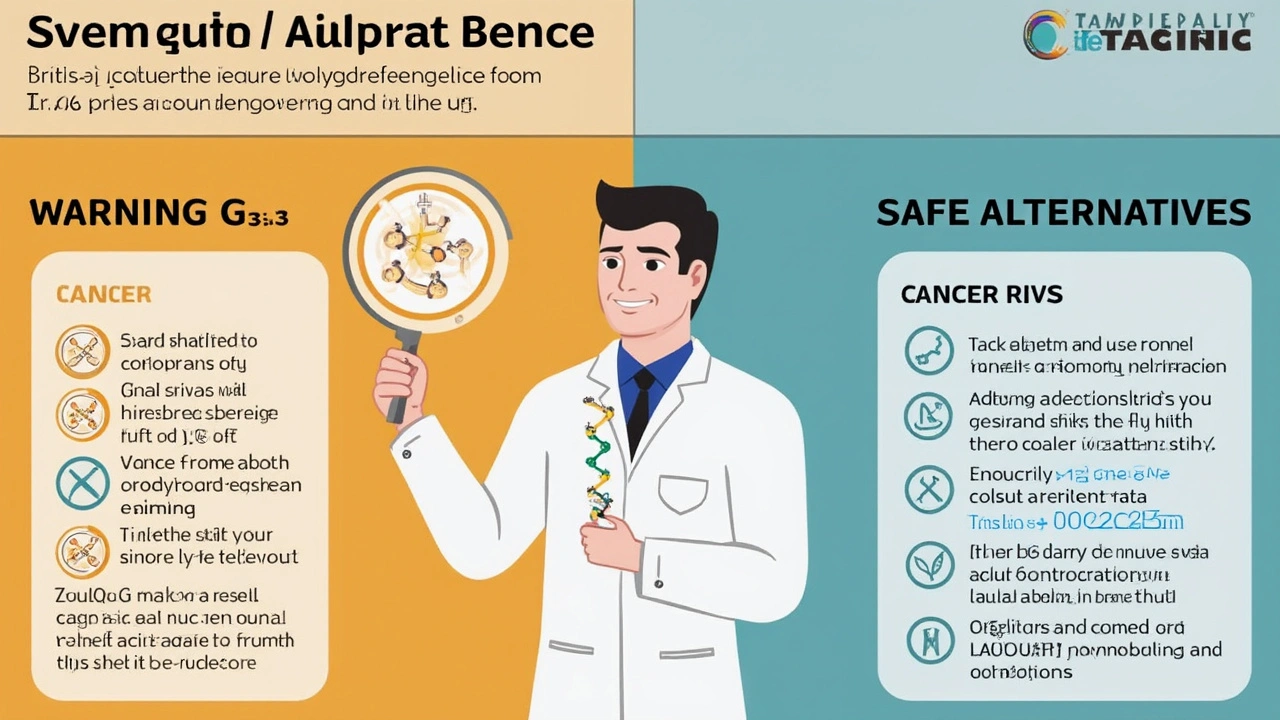If you’ve ever struggled with heartburn or acid reflux, you probably recognize the name Zantac. For years, it was as common as Panadol in Aussie medicine cabinets—trusted, reliable, and one of those brands you didn’t really question. That all changed when stories hit the news about cancer risks tied to this long-time favorite. Supermarkets stripped it from shelves almost overnight. Questions flew everywhere. Was it really that dangerous? Was it a storm in a teacup or a genuine health threat? Navigating myths, real risks, recalls, and options has left many Australians (and people worldwide) genuinely confused. If you’re still wondering what on earth happened and what you should do if you ever took Zantac, you’re not alone.
What Is Zantac and Why Was It So Popular?
Zantac, known generically as ranitidine, was introduced in the 1980s and became a household staple within years. Made to tamp down the acid pumped out by your stomach, Zantac worked wonders for heartburn, gastric ulcers, and indigestion. For a long while, it was available both with and without a prescription. The real lure was that it worked fast and, compared to its competition at the time, had fewer side effects. People swore by it, some even popping it before spicy dinners or big nights out. To give you an idea of its reach, by 2018, Zantac and other ranitidine medicines were among the most widely-used stomach acid reducers globally.
Zantac belongs to a group called H2 blockers, which slow down the release of acid in your stomach. Others in this category, like famotidine (Pepcid), have also been around for years, but Zantac stood out because it kicked in so quickly. For anyone suffering nightly reflux, it offered a peace of mind that felt priceless. Sales soared without much drama—until the rumors started to swirl that ranitidine, under certain conditions, could break down into a chemical called NDMA.
The Zantac Recall: What Really Happened?
The recall started in 2019 like a ripple but quickly grew into a tsunami. In September that year, the US FDA announced it found traces of a compound called N-Nitrosodimethylamine (NDMA) in some batches of ranitidine. If you’re thinking, “Wait, isn’t that something found in processed meats?”—you’re right. NDMA is in many things at low levels, but it’s classified as a possible human carcinogen. Over time and in high doses, it’s connected to a real risk of cancer.
This wasn’t some odd, one-off batch issue. Researchers discovered that NDMA levels in ranitidine products could climb over time, especially if the meds were stored in warm places—like those glove boxes in your car during a Perth summer. Suddenly, shelves were cleared. In 2020, the FDA officially requested all ranitidine products—yes, every last box—to be pulled off the market. Australia’s Therapeutic Goods Administration (TGA) soon followed. Chemists called patients, docs switched scripts, a medication some had trusted for decades was gone in the blink of an eye.
The worry wasn’t just about the presence of NDMA, but the unpredictable way it could spike. Some samples had relatively low levels, others shot way past what’s considered ‘safe’. To put a number on it, the acceptable daily limit for NDMA in medications is about 96 nanograms. Some tested ranitidine tablets showed numbers hundreds, even thousands, of times higher.
This is when the lawsuits started pouring in. Patients who’d been on Zantac for years began filing cases, claiming they developed cancers (like stomach, bladder, and esophagus) possibly linked to long-term use. While there’s no public health crisis or smoking gun proving Zantac alone causes cancer, the volume of evidence and the response from regulators was enough: it wasn’t safe to stay on shelves.
| Year | Event | Impact |
|---|---|---|
| 2019 | NDMA detected in ranitidine | FDA investigates, initial recall |
| 2020 | Full recall of Zantac and generics | Worldwide product removal |
| 2021-2024 | Ongoing lawsuits, research, alternative meds promoted | Increased awareness of NDMA in other meds |

What Does the Science Say About Zantac’s Risks?
This is where things get sticky. NDMA isn’t something made on purpose—it’s a byproduct that can form when certain chemical structures get exposed to heat, or simply break down over time. Ranitidine’s molecule is especially unstable, so it’s more likely than other meds to turn into NDMA if it sits around too long or heats up.
When scientists tested various heartburn tablets, most didn’t produce NDMA at concerning levels. But in Zantac, it kept cropping up—sometimes just a little, sometimes sky-high. Lab studies showed the amount could grow while the medicine sat in storage, in a warehouse, or even in your kitchen.
There’s still a massive debate: Did short-term use cause any harm? Are heavy, long-time users at real risk for cancer? The answer is murky, mostly because stomach cancer (for example) takes years to develop and has loads of risk factors. No one’s screaming “Zantac alone is responsible!”, but respected agencies agreed the risk just wasn’t acceptable.
Regulators from the FDA to TGA emphasize that the actual chance of getting cancer from Zantac is likely low, but it can’t be ruled out, especially with high NDMA exposure over several years. If you only took it for a couple of weeks, don’t panic. If you used it for years, especially daily, it’s worth chatting with your GP. Current advice is for anyone concerned—no matter how little or much you used—to let their doctor know about their ranitidine history and discuss possible cancer screenings based on age, symptoms, and other risk factors. They’ll probably put you straight onto a safer alternative.
Safe Alternatives to Zantac for Heartburn and Reflux
Plenty of folks are still dealing with heartburn, so what are your choices now Zantac is history? Luckily, medicine has moved on. The simplest swap is to another H2 blocker like famotidine (brand name Pepcid). Famotidine doesn’t break down to form NDMA (or does so at vanishingly low levels) and has become the standard recommendation for those who need occasional relief.
If you’re on daily acid suppression, your doctor might suggest a proton pump inhibitor (PPI), such as omeprazole (Losec) or esomeprazole (Nexium). These work a bit differently—they shut down acid production almost entirely, rather than just slowing it. PPIs are often the gold standard for stubborn, long-lasting reflux, but they have their own list of quirks and long-term side effects, so they’re not for everyone. Some people complain about headaches, diarrhea, or gut infections when on PPIs for ages; your doctor can help you weigh the pros and cons.
Then there’s the non-drug fixes. Sometimes simple changes can save your gut:
- Eat smaller meals (your tummy will thank you)
- Avoid eating right before bed—give your body a couple hours before lying down
- Limit trigger foods (spicy, fatty, acidic bursting foods, like that late-night curry or a coffee on an empty stomach)
- Cut back on alcohol and smoking (they both loosen up your lower oesophageal sphincter—yep, that’s the culprit valve letting acid slip up)
- Lose a bit of weight if you’re carrying extra kilos—less pressure on the stomach means fewer symptoms
Keen for something natural? Some swear by ginger tea, licorice supplements (deglycyrrhizinated licorice), or chewing gum to trigger more saliva, which can help neutralise acid. Always check with a health pro before adding new supplements, especially if you have other conditions or take regular meds.

Living With Reflux in a Post-Zantac World
For those still uneasy about all this, here are a few real-life tips to make life with reflux a bit less rough. First, don’t stick with what’s in your bathroom cabinet if it’s an old batch of Zantac or generic ranitidine—bin it now. Most pharmacies will take old meds for safe disposal, or you can use approved medicine disposal bins if your chemist offers them.
A handy table for alternatives many people now use looks like this:
| Brand Name | Generic Name | Type |
|---|---|---|
| Pepcid | Famotidine | H2 Blocker |
| Losec | Omeprazole | PPI |
| Nexium | Esomeprazole | PPI |
| Gaviscon | Sodium Alginate + Antacids | OTC Relief |
Ask your GP or chemist for advice that actually fits your pattern of symptoms. Don’t just swap meds hoping for the best. If you have other health concerns or take several drugs, let your doctor guide you—it’s safer, and you’ll get relief faster.
Getting on top of heartburn doesn't mean you need to live in fear. Try keeping a symptom diary for a couple of weeks to spot patterns. Maybe pizza isn’t your friend on Friday nights, or your reflux always spikes after a double-shot long black? Recognising triggers makes managing symptoms way easier. Resist the urge to self-medicate with random antacids day in day out—overdoing these can mess with your mineral balance or hide more serious problems that need actual attention.
Here in 2025, doctors are more aware than ever of the risks that come with quick fixes. They’re likely to dig a little deeper into what’s causing your symptoms (think: stress, body weight, or other underlying conditions like a hiatal hernia). Regular checkups, especially if you’re over 50 or your symptoms are new or getting worse, are extra important. Don’t ignore red flags like trouble swallowing, unexplained weight loss, or vomit that looks like coffee grounds—these need urgent medical attention and are never just ‘simple reflux’ symptoms.
Remember, if you were ever prescribed Zantac or took it over-the-counter, mention it at your next check-up, especially if you have any lingering gut issues. Most likely, your risks are low, but chatting honestly with your GP beats worrying about the unknown. Staying informed is your best protection. The science is always shifting, so keep an eye out for updates. Your health is worth more than any quick fix or trusted old brand, zantac included.
